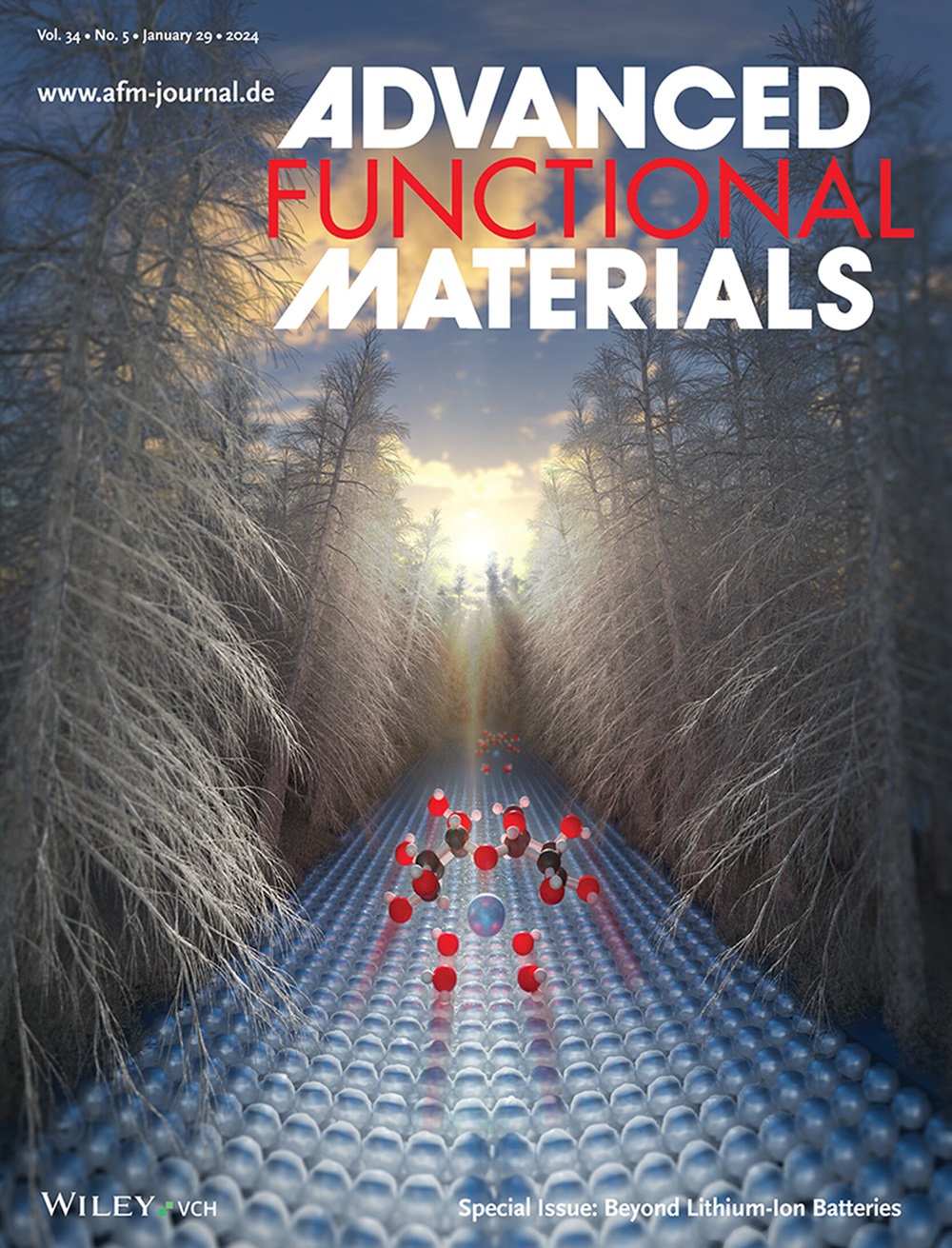Expandable Bidirectional-Gradient Current Collector for High-Performance Li Metal Battery
IF 18.5
1区 材料科学
Q1 CHEMISTRY, MULTIDISCIPLINARY
引用次数: 0
Abstract
3D porous current collectors (CCs) play a critical role in ensuring uniform lithium (Li) deposition and distributing current density evenly across electrode surfaces. These attributes are essential for improving the safety and stability of Li metal batteries. However, current 3D copper (Cu) -based CCs face notable drawbacks, such as rigid structures, insufficient pore volume, excessive mass, and weak intrinsic lithiophilicity for Li, which hinder their performance. To overcome these limitations, a novel self-assembly method is developed to construct a highly expandable bidirectional-gradient current collector (EBG CC). This advanced design integrates Cu-silver (Ag) -Cu nanowires and offers high porosity, which provides ample space for Li deposition. The unique gradients in lithiophilicity and conductivity within the EBG CC enable uniform Li nucleation, thereby ensuring stable and efficient cycling performance. Electrochemical testing in half-cell and symmetric cell configurations demonstrated the EBG CC's superior rate capabilities and long-term capacity retention. Additionally, a bidirectional pouch cell configured as Li/EBG CC | LiFePO4 | Li/EBG CC delivered an impressive discharge capacity of 160.3 mAh g⁻¹ at 1C. These results underline the potential of lightweight, porous, and expandable current collectors in mitigating Li dendrite growth and significantly enhancing the performance of Li metal anodes.

高性能锂金属电池的可扩展双向梯度集流器
3D多孔集流器(CCs)在确保均匀锂离子沉积和均匀分布电极表面电流密度方面发挥着关键作用。这些特性对于提高锂金属电池的安全性和稳定性至关重要。然而,目前的3D铜基CCs存在明显的缺陷,如结构刚性、孔隙体积不足、质量过大、Li的固有亲石性弱等,这些都阻碍了它们的性能。为了克服这些限制,开发了一种新的自组装方法来构建高度可扩展的双向梯度集流器(EBG CC)。这种先进的设计集成了Cu-silver (Ag) -Cu纳米线,并提供了高孔隙率,为锂沉积提供了充足的空间。EBG CC内独特的亲锂性和电导率梯度使Li成核均匀,从而确保稳定有效的循环性能。在半电池和对称电池配置下的电化学测试表明,EBG CC具有优越的倍率能力和长期容量保持能力。此外,双向袋状电池配置为Li/EBG CC | LiFePO4 | Li/EBG CC在1C时提供了令人印象深刻的160.3 mAh g⁻¹的放电容量。这些结果强调了轻质、多孔和可膨胀集流器在减缓锂枝晶生长和显著提高锂金属阳极性能方面的潜力。
本文章由计算机程序翻译,如有差异,请以英文原文为准。
求助全文
约1分钟内获得全文
求助全文
来源期刊

Advanced Functional Materials
工程技术-材料科学:综合
CiteScore
29.50
自引率
4.20%
发文量
2086
审稿时长
2.1 months
期刊介绍:
Firmly established as a top-tier materials science journal, Advanced Functional Materials reports breakthrough research in all aspects of materials science, including nanotechnology, chemistry, physics, and biology every week.
Advanced Functional Materials is known for its rapid and fair peer review, quality content, and high impact, making it the first choice of the international materials science community.
 求助内容:
求助内容: 应助结果提醒方式:
应助结果提醒方式:


